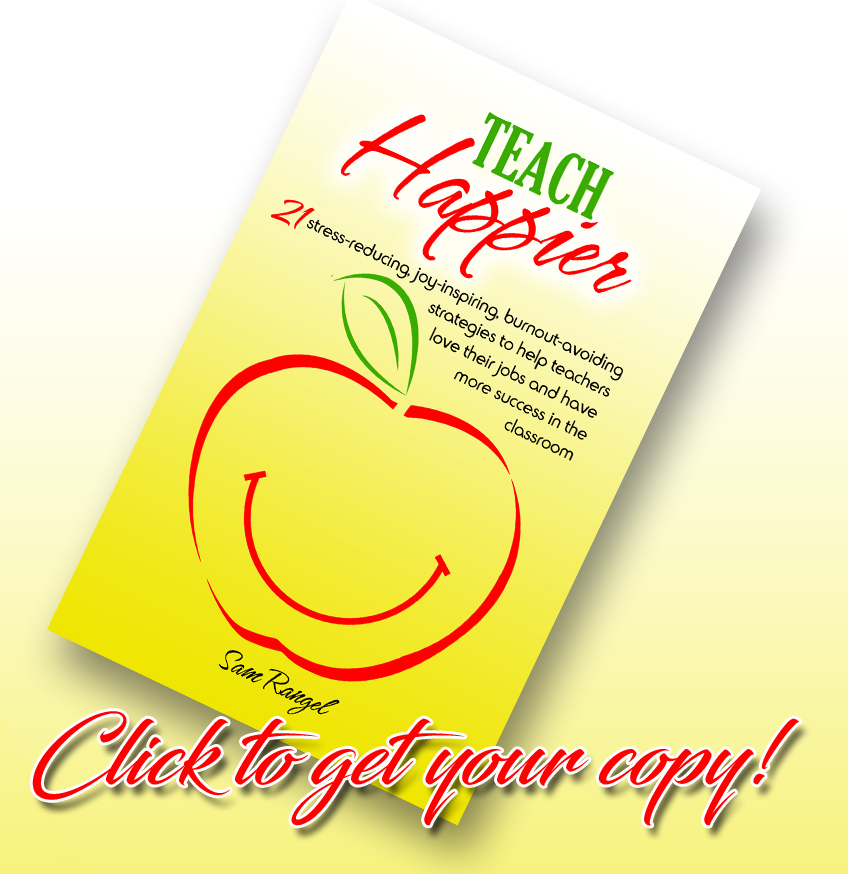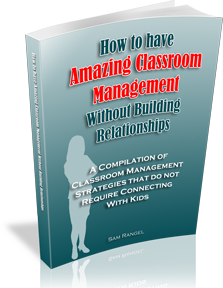While checking out other teacher blogs around the net, I came across a particular post that I had to share. The blog is www.lancebledsoe.com, and I was granted permission to include his post on SITC. He compares teaching to boxing, which is interesting, because often it feels like we’re in a boxing match with students, parents, administration, standards, etc. just seeing who is going to survive to the bell. Check it out:
Teaching and Boxing
by BLEDSOE on JULY 21, 2010
My wife’s a boxer. She’s been doing it a few years and has gotten good enough at it that she now helps with the training of some of the newer boxers who come to her gym. The newbies are young and old, male and female, large and small. Many of them begin with the idea that they don’t want to actually get in the ring with anyone, they just want to take advantage of the fitness classes, learn how to hit the heavy bag or the mitts, get in shape, etc., and that’s fine. But sometimes they decide they want to learn to box against an actual opponent. And most of them discover pretty quickly that there’s a big difference between being good at a boxing workout and being good at boxing. In fact, there are two completely different skill sets you have to develop.
The first skill set is pretty straightforward and almost entirely physical; you have to learn how to correctly throw different punches, you have to build up strength and endurance, etc. You learn these things mostly by practice and brute force repetition. The second skill set is not at all straightforward; it’s some strange combination of physical and mental, and to learn it you have to get in the ring with someone and trade punches.
The thing that makes a lot of people reluctant to go from engaging in boxing workouts to actually boxing is this simple truth: if you’re going to box, you’re going to get hit. Not only that, but since you’re new at it you’re not going to be very good at it, so you’re going to get hit a lot and maybe even get knocked down and get your nose bloodied a couple of times. And not only is that going to be physically painful, it’s also going to be emotionally painful because there are going to be a lot of people standing around ringside watching you get your butt kicked.
When I first went into teaching several years ago, I remember how frustrating it was. It was really difficult, much more difficult than I had expected, and all of the problem-solving skills I had developed, both as a student and in my previous career as an engineer, weren’t helping. My students wouldn’t listen, they wouldn’t do their homework, they wouldn’t pay attention, they weren’t interested in what I was trying to teach, I had to figure out how to deal with parents and grading and attendance; I had all these really difficult teaching problems I was trying to solve, and I couldn’t solve them. It was like I didn’t know anything at all about how to be a good teacher.
And of course, I didn’t. Because even though I had been a really good student and I knew my subject matter inside and out, being a teacher involves a completely different skill set and I hadn’t developed it yet. If you’re new to teaching, you’re not going to have those skills yet either, but you’ll develop those skills from your experiences in the classroom, and here are a few things to keep in mind while you’re doing that:
1. Most of the problems you have as a first year teacher are perfectly ordinary. Every first year teacher struggles with the same kinds of problems: classroom management issues, authority issues, discipline issues, planning issues, organizational issues. Yes, they’re difficult problems, and yes, they’re frustrating, but every new teacher struggles with the exact same problems. You’re perfectly normal.
2. Being a good teacher requires learning a completely different skill set from being a good student, and to learn it, you’re going to have to get in the ring and trade some punches. Don’t get me wrong, in order to be a good teacher you also need to have a solid mastery of your subject matter, just like a boxer needs to be in good physical condition, but that’s just a foundation on which you’re going to build your teaching skills.
3. You need a good coach. Even better, you need a bunch of good coaches. Your coaches are going to be the teachers and administrators at your school who have been doing this a while. Talk to them. Ask them questions. Tell them about problems you’re having and ask for their suggestions. Believe me, they’ve experienced all of the same problems and more.
4. Try not to obsess about it when you get knocked down. Believe me, you’re going to have plenty of classes that don’t go well, plenty of students that you don’t reach, and plenty of situations that you just plain screw up. Try to learn from them, plan to do better next time, then let it go.
Teaching isn’t something you learn by studying really hard or passing a bunch of classes, any more than boxing is something you learn by spending hours punching the heavy bag and working on your cardio. You learn to box by getting in a ring with another boxer and boxing, and you learn to teach by getting in a class with a bunch of students and teaching. And your first few times you’re not going to be very good at it. You’re going to take a bunch of shots to the head and body, and you’re going to get your breath knocked out of you, and you may get knocked down a time or two. Sometimes you may be a little embarrassed at what a poor job you’re doing, especially with so many people watching.
But take heart. This is how you become a boxer teacher. You prepare yourself as best you can, then you go into your classroom and do the best you can, and when you get knocked down you get up and go right back in. And after a while you’ll discover that through all those experiences in the classroom you are learning things about teaching that you can’t learn from a book. And pretty soon you’ll be helping out the newbies, too.
Thanks Lance for the great tips.



